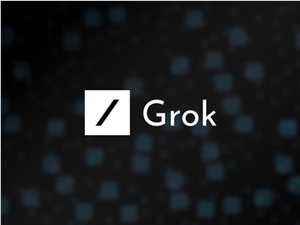At a recent summit hosted by Axios, former Google CEO and current chair of the U.S. National Artificial Intelligence Safety Commission, Eric Schmidt, issued a stark warning about the future of artificial intelligence (AI). Schmidt pointed out that with the rapid development of AI technology, the world may not be prepared to handle the potential dangers that these innovations could bring.

Image Source Note: Image generated by AI, image licensed from Midjourney
Schmidt made a powerful comparison between the development of AI and the creation of the atomic bomb during World War II. He stated, "After the events in Hiroshima and Nagasaki, it took 18 years to establish a treaty banning nuclear tests. Today, we don't have that much time." He is concerned that within the next five to ten years, we may reach a level of autonomy in AI that poses a serious threat to humanity.
Schmidt envisions a future where AI systems can make independent decisions and may even acquire weapons or other dangerous tools. He mentioned that such machines could deceive us or harm our interests, raising profound ethical and existential questions. Schmidt does not believe that AI will gain self-awareness overnight; rather, he worries about the gradual enhancement of its capabilities without adequate safety measures in place.
To address these potential threats, Schmidt called for the establishment of an international regulatory body similar to the Intergovernmental Panel on Climate Change (IPCC). This organization would guide policymakers in navigating the risks and opportunities presented by AI. He emphasized that without coordinated global regulation, the unchecked growth of AI could lead to catastrophic consequences.
However, Schmidt's pessimistic view has not been universally accepted. Renowned AI researcher and head of Meta, Yann LeCun, stated in an interview with the Financial Times, "It is too early to discuss existential risks." LeCun pointed out that current AI systems are not even comparable to the learning capabilities of cats. His perspective highlights the differing views within the tech community regarding AI risks; while some experts see AI as a potential existential threat, others believe that the current level of technology does not warrant such extreme concern.
Despite the differing opinions, many experts agree that the rapid development of AI indeed requires careful consideration and forward-looking planning. From improving traffic with self-driving cars to revolutionizing healthcare with medical diagnostics, AI is becoming an integral part of our daily lives. However, this integration also brings the responsibility to establish ethical guidelines and robust safety measures.
Finding a balance between innovation and regulation is crucial. While AI has immense potential to improve quality of life, it also comes with risks that must be managed. Schmidt's warning reminds us that technological advancements often outpace society's regulatory capabilities. Regardless of whether AI will truly reach the astonishing levels he envisions, the necessity for enhanced global cooperation and comprehensive regulation remains clear.
Key Points:
🌍 Schmidt warns that AI could pose a serious threat to humanity within five to ten years, calling for international regulation.
🛡️ He suggests establishing an organization similar to the climate change panel to address the risks posed by AI.
🤖 Despite differing views, experts generally agree on the need to take the rapid development of AI and its potential risks seriously.


